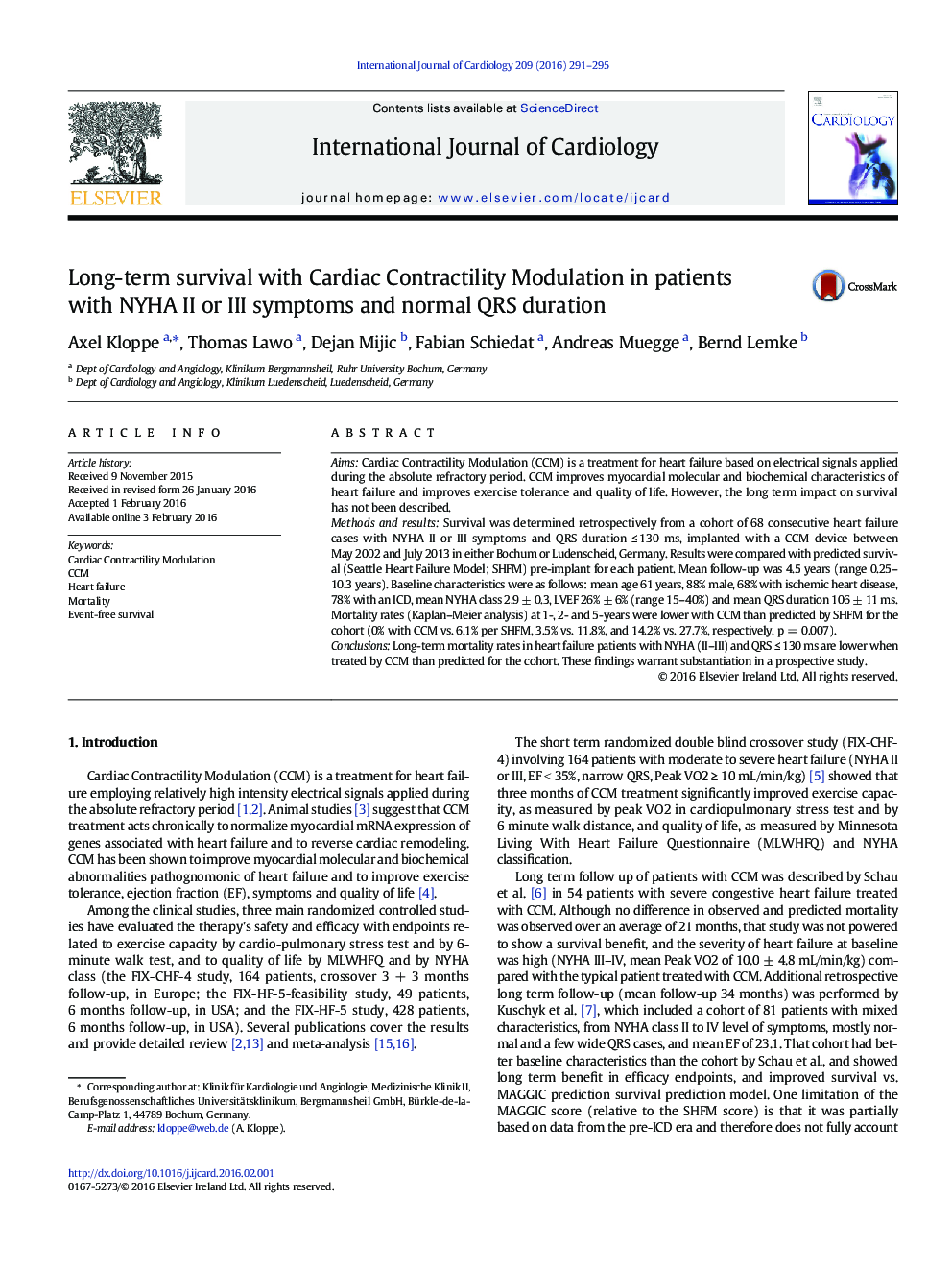| Article ID | Journal | Published Year | Pages | File Type |
|---|---|---|---|---|
| 5965114 | International Journal of Cardiology | 2016 | 5 Pages |
AimsCardiac Contractility Modulation (CCM) is a treatment for heart failure based on electrical signals applied during the absolute refractory period. CCM improves myocardial molecular and biochemical characteristics of heart failure and improves exercise tolerance and quality of life. However, the long term impact on survival has not been described.Methods and resultsSurvival was determined retrospectively from a cohort of 68 consecutive heart failure cases with NYHA II or III symptoms and QRS duration â¤Â 130 ms, implanted with a CCM device between May 2002 and July 2013 in either Bochum or Ludenscheid, Germany. Results were compared with predicted survival (Seattle Heart Failure Model; SHFM) pre-implant for each patient. Mean follow-up was 4.5 years (range 0.25-10.3 years). Baseline characteristics were as follows: mean age 61 years, 88% male, 68% with ischemic heart disease, 78% with an ICD, mean NYHA class 2.9 ± 0.3, LVEF 26% ± 6% (range 15-40%) and mean QRS duration 106 ± 11 ms. Mortality rates (Kaplan-Meier analysis) at 1-, 2- and 5-years were lower with CCM than predicted by SHFM for the cohort (0% with CCM vs. 6.1% per SHFM, 3.5% vs. 11.8%, and 14.2% vs. 27.7%, respectively, p = 0.007).ConclusionsLong-term mortality rates in heart failure patients with NYHA (II-III) and QRS â¤Â 130 ms are lower when treated by CCM than predicted for the cohort. These findings warrant substantiation in a prospective study.
